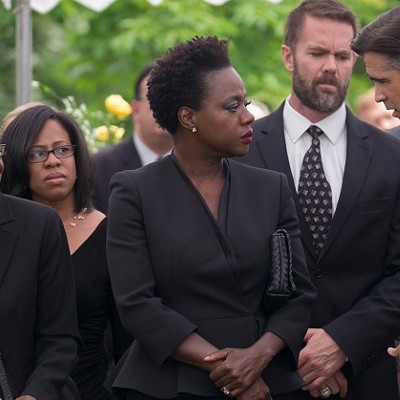The notion in public relations is that there’s no such thing as bad publicity. That certainly has been disproven this year what with the many accusations of sexual assault leveled at many in Hollywood and beyond. Director Ridley Scott certainly wasn’t going to let all of his hard work and that of his cast and crew of “All the Money in the World” go to waste in the wake of the accusations of made towards Kevin Spacey, who starred in the film as billionaire J. Paul Getty. The filmmaker’s mad scramble to erase the actor from the film and replace him with screen veteran Christopher Plummer – Scott’s original choice for the role – has held Hollywood and film lovers in its sway, wondering if he could indeed pull of this feat and still meet the previously set release date of December 22nd and if it would be worth all the trouble. (For the record, the new scenes were shot in nine days beginning on Thanksgiving and the release date was adjusted to December 25th)
My fear was that this story would overshadow the film and that we’d be left wondering why they went to the trouble. Turns out that “Money” is very much worth the all the effort Scott and his reconstructed cast and crew went through to get it to the screen on deadline. This engrossing based-on-fact tale contains three solid performances for its primary trio, is as slick and confident as anything Scott has produced and provides a fascinating story on the vagaries of wealth that can easily stand aside the similarly themed “Reversal of Fortune” and “There Will Be Blood.”
Scott and screenwriter David Scarpa give an effective, yet brief summation early on of how the film’s central subject became the world’s first billionaire, all of which goes a long way towards informing the viewer how he became the man he was – shrewd, ruthless and miserly. All of these personality traits are ultimately exposed when Getty’s grandson, John Paul Getty III (Charlie Plummer – no relation), is kidnapped in Rome in July of 1973. The ragged crew that absconds with the boy demands $17 million for his safe return, money the boy’s mother Abigail Harris (Michelle Williams) does not have, and which Getty refuses to pay, reasoning that to do so, would set off a rash of kidnap attempts on his other progeny.
There’s a degree of logic behind the old man’s logic but as this affair drags on, his true reasons for not paying emerge, all of which have a financial basis to them. So that he might appear helpful, Getty deputes Fletcher Chase (Mark Wahlberg), a former CIA agent he has in his employ, to assist Harris with ransom negotiations and the safe return of her son. What he finds over the six months this affair drags out leads him to question his allegiance to his employer.
Though the story is quite dense, Scott manages to dispense with all of the salient facts – and some of the fudged ones – with the sort of effortless narrative flow he’s become known for. Though the movie is a bit long, in the hands of a less economical filmmaker, this material could have sprawled into a three-hour affair. Scott’s trademark sense of urgent, economic filmmaking holds him in good stead as the story never falters, holding us in its grasp throughout.
While Plummer’s performance will be the one under the spotlight, Williams must be commended in a difficult role as she’s runs the gamut here from being a confident, fun-loving wife to John Paul Getty II (Andrew Buchan) to distraught mother and finally steely negotiator. It’s a finely nuanced turn that should be recognized. Equally good but in a different capacity is Wahlberg who gives a quiet, unassuming performance as the can-do man of negotiation. He provides a rock solid foundation for the others to revolve across.
As for Plummer, always the professional’s professional, the actor captivates us from his very first appearance sucks us in, his performance revolving around the actor’s ability to ooze malevolent arrogance, giving us a man that’s disingenuous to his core, one who only sees life in terms of profit and loss. You can’t take your eyes off him whenever he’s on screen and the fact that Spacey and the controversy around him never crosses your mind is a tribute not only to Plummer but everyone involved. In a sense Spacey and Getty’s tale are the same, as these men’s extreme sense of hubris led to their downfall, a lesson oft repeated and driven home forcefully with Scott’s excellent film.






















